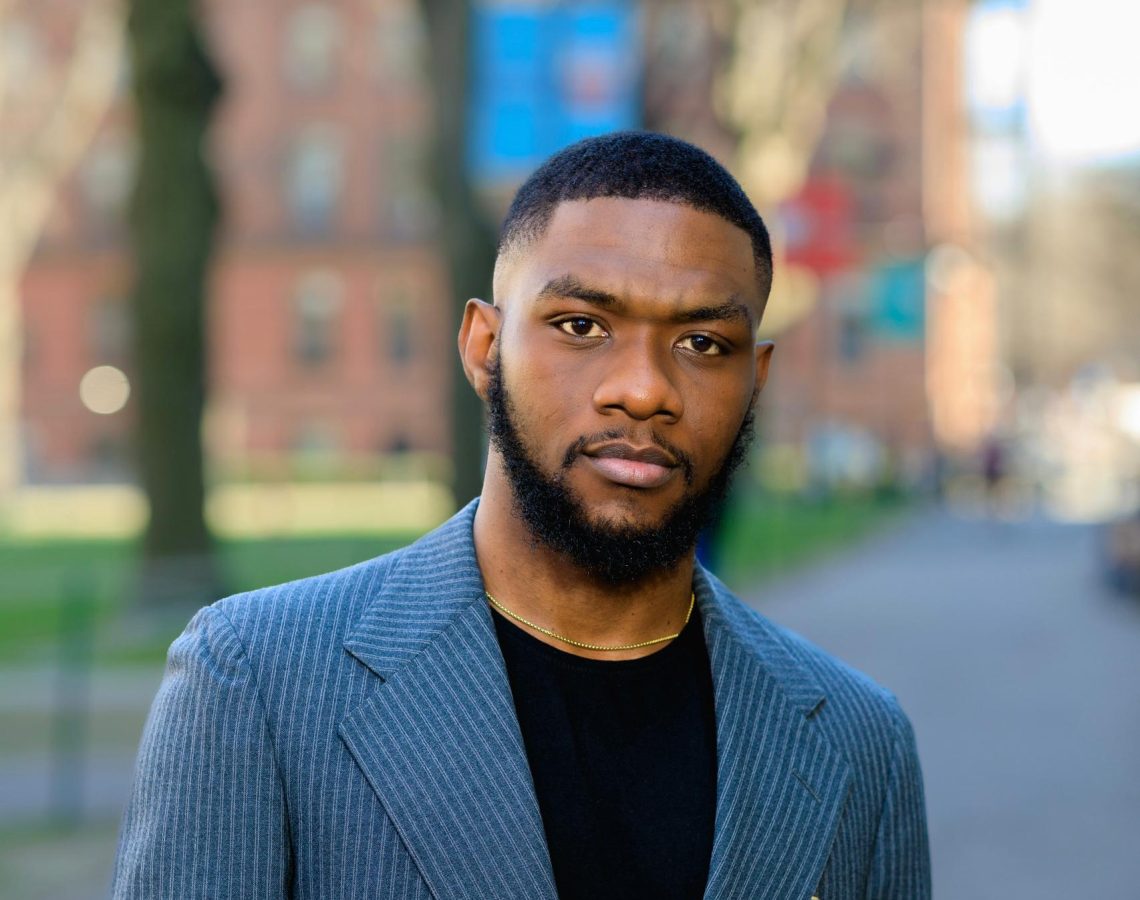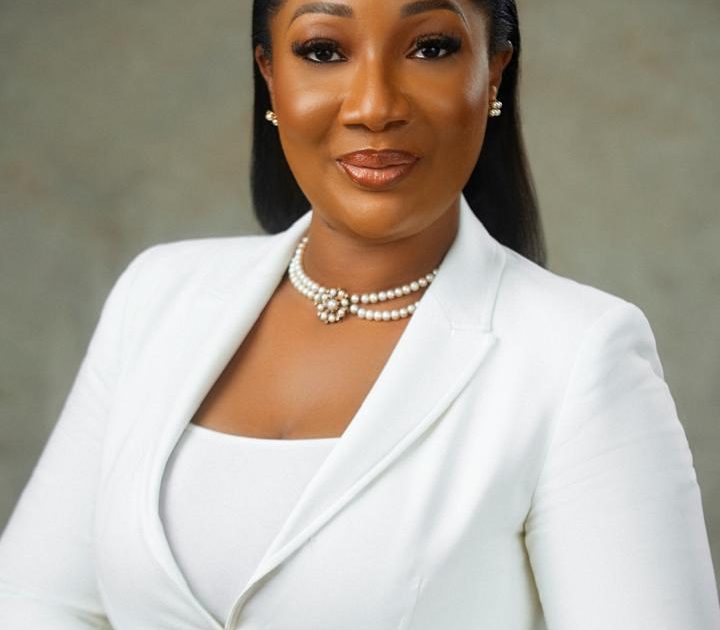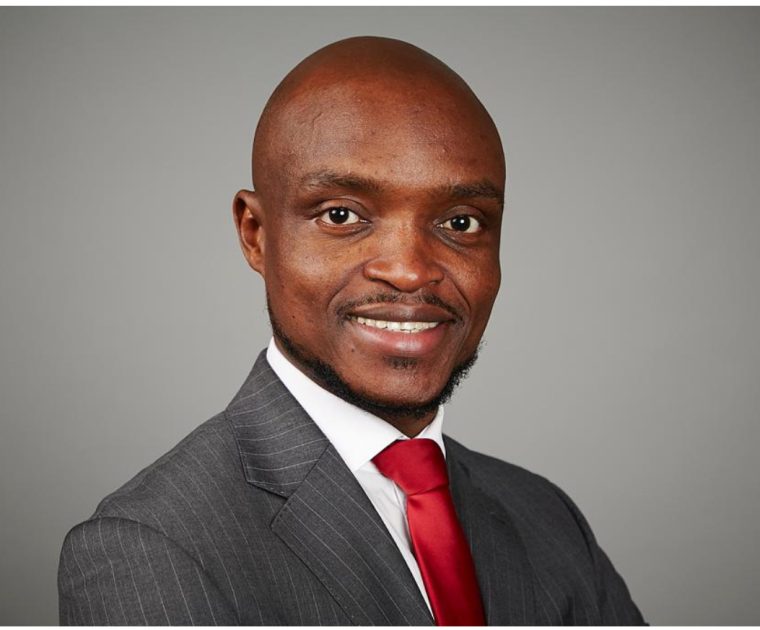Early Career Lessons from a Nigerian-Bred Associate in U.S. Big Law

Destiny Ogedegbe
What were the most impactful decisions or actions you took in your first five years that set you up for long-term success in your legal career?
The decision to leave Nigeria and start a career here in the States, is by far the most impactful. To plan for long term career success, first, you account for the markets. Everything responds to the market and all businesses fall to the level of the economy. To have a successful career, the economy has to be fairly robust-to-error. If the economic conditions that affect the quality of life and work are not predictably observable, you simply can’t plan for a long term career. What are the chances of stumbling upon unforeseeable success in a professional career?
The Nigerian economy, in the last couple of years, has declined significantly. I don’t think it makes historically economic sense to bet against the decline.
It’s different if you’re an entrepreneur, because you suffer from the downsides, but you also benefit from market elasticity; there is some ergodicity in the randomness, ideally. As a salary earner at the bottom of the rung, in an industry where your compensation is lockstep, it’s hard to justify the economics. But to be fair, this is just my view and, despite my good fortune, I understand that the choice to stay in a sinking economy or not, is not a choice between sense or nonsense; it’s a question of opportunity and functionality. For some, there’s no opportunity, and, for others, it feels better to lose a little on the swings than to risk it all for a gain on the roundabouts. I understand them all.
That said, success in a career is not only defined by compensation. It’s also about opportunities for growth, competence, experience and fulfillment. In this sense, some of the most impactful decisions I’ve made include: (1) gaining multifaceted experiences in practice areas such as projects, leveraged finance, securitization, M&A, PE and esoteric products; the breadth has given me a neater, more intricate understanding of transactional work; (2) developing a solid work ethic—something that started from my days in school—and making sure I’m hardly found wanting in hard work, professionalism, reliability, and capacity; (3) keeping like-minded, smart, supportive and ambitious friends from whose motivations I draw strength; and (4) constantly knowledge-seeking. I’m never not learning; that is my physics, that is also my metaphysics.
Finally, it’s hard to truly capture the most impactful decisions I’ve made without being reductive. My life in the last 5 years has been fast-moving—from practice in Nigeria to Harvard Law and then to Big law in the U.S. In these years, I made many life-altering decisions that turned out good. But they would not have been impossible without certain, less obvious decisions I made or steps I took farther back in the course of my life. There are many little things I was fortunate to get right, that may be subtle but more impactful, than the bigger decisions I could not have gotten wrong. You tell me which is more impactful: the chicken or the egg?
How did you handle the steep learning curve and manage the pressure during the early years?
The simple answer is that I enjoy learning. More than anything else. I have a high stress tolerance, a high level of focus and I need a fair level of complexity in a job for me to find it worthwhile or enjoyable. I’d be maddeningly bored and restless if I could figure out my job too easily.
Besides learning, I love working. Long hours, if I have to, if meaningful. I may even derive some sort of perverse pleasure from working, even though I may not admit it, especially to those whose compassion I mischievously cherish. Is it healthy? Probably not. Am I overcompensating? Probably. But is it true? Yes. It has nothing to do with law practice itself, but law practice offers all these challenges to me and I offer myself in return. My endearment is axiomatic. This is the simple answer.
That said, on a general note, the easiest way to not struggle with enduring what you do is to find something you love or something meaningful; for the purposeful, meaning often easily inspires love. When you do great work, you feel like you have skin in the game. Oh, skin in the game. This is where I am at, mentally. I have a solid plan for the future and a good sense of where this job will take me. So, effectively, working the way I do, is my skin in the game, a crucial part of a broader plan, the end of which I see unmistakably clearly.
When you have skin in the game, like an investor whose millions is on the line, dull things like reading the footnotes of a financial statement become easy to do. Your partners and seniors were not necessarily more passionate or hardworking than you are when they were younger, they got to a point where they resolved that this is the life they wanted. And once that decision was made, it became everything for them. It became important. They look like machines and gods to you now because they have skin in the game.
A core reason why us young professionals struggle to focus is because it often takes time for us to fully accept that, yes, this is it, I have to zero in on this and forget the other options I keep thinking I have in my back pocket. It all changes, I think, once you zero in. Because when you do that, you put in everything to be great at it. It is the vulnerability of failing, having put in everything on the line, that makes you super tolerant of it and eventually great at it. Skin in the game first makes you fragile, then makes you anti-fragile.
I think the way to solve for the tolerance, if you care for this job, is to develop a long term plan. But for now, lean into the initial imbalance. As rivers find their ways to the sea, that imbalance will evolve and self-correct the better you get at the job.
What advice would you give on balancing the pursuit of specialisation with gaining broad legal experience in the first five years?
Contrary to what some people say, I think early specialization is great if you’re in the right market. In a small market, say Ghana for instance, it would probably be a bad idea but if the market is steep, subject matter expertise becomes valuable. So if you’re in the right market, you love what you do from early on and you feel accustomed to it, stick with it. I’d say it’s probably helpful to understand at least two different practices, but really, on the corporate side of things at least, the various practices substantially cross-pollinate and lawyers constantly need each other. So, you’ll still learn a considerable portion of other practices over time and more than you’d imagine, if you care for it.
Put differently—specialization is great. Think of it as a marriage; no need worrying over the other choices if you’re pretty sure you want to be with that one person. Because whichever choice you make, there’s always the question of whether the path not taken would have been better. You might as well take the one you’re convinced of today, early on, and get it over with anyway. Besides, it’s quite easy in law to try out a different practice over time.
What strategies helped you build credibility and trust with senior colleagues, firm partners, and clients early on?
You build credibility by producing excellent work products and you build trust by being credible, consistently. But the ability to do excellent work is not, in itself, a strategy. It’s a skill; to be excellent, especially at the level of practice I operate, you have to be intelligent, ruthlessly critical of your standards of brilliance, hardworking and solution-driven. These are skills. The strategic element, is knowing how to make your skills obvious for eventual utilization and recommendation among partners. On strategy, what has always worked for me is to be super responsive, helpful and collaborative. Say for responsiveness—I respond to all work emails in less than 5 minutes; the times in which I miss this are few and far between. I am always available and I emphasize my availability. Even when I’m slammed, I offer to help. I attend all meetings. I contribute to discussions and offer my ideas when deal complications arise, however pedestrian they may seem. I never assume that what is valid is also immediately obvious—Partners love this attitude.
Then, when I get on a deal, I put in the hours and I treat each deal as though I were personally hired by the client to join the team. I commit insane hours to work and constantly assure my partners that I’m on top of these deals (they love the assurances, those ones). You are more likely to see a flying pig than it is to find anyone I’ve worked with who does not acknowledge my commitment to work. And these things show in the quality of your work—the more time, effort and thinking you put into work, the more you produce excellent work products. When you have that going for you, the little things you’ve been implementing on a strategic level, become more admirable. There are things in life that do, not in themselves, announce much, but when experienced alongside other things, they become powerfully disarming.
Admittedly, there’s a situational irony here: strategy makes more sense when you’re already validated about your competence. So even if it’s the intuitive thing for young associates to care for, it feels inadequate, like a cope-out, until there’s some real improvement in the technical aspects of the job. Which is fine—focus first on the fundamentals: everybody loves to work with the guy who shows interest in the work and commits time to making the lives of the seniors easier (and the best way to do this, is to produce great work).
What advice would you give on the best approach to pursuing post graduate studies early on in your career?
The best approach is to think about graduate studies as a means and not the end. Instead of asking: “when should I do a postgraduate?” the question should be: why do I want a postgraduate study? If the goal is to eventually get into a new market or lateral into a well-paying job in a new industry, the question you should ask is: what is the best way to get this goal? The answer to that question may not necessarily be a post-graduate degree. Or it may be another kind of degree altogether. The most effective strategy may result in getting an MBA, or qualifying under the SQE exemption in the U.K., or taking the SQE or New York bar exams directly, rather than going to do a degree first, or it may be getting an LLM, or it may well be that you should pursue a J.D rather than an LLM.
Many people only think about leaving their home countries and the best way, it seems, is to go for further studies. The thinking ends there and they somehow hope that things will figure themselves out eventually. It’s understandable, since survival is a more urgent need. But I encourage people to always plan for post-school programs and ask questions around their chances of getting a job, visa requirements for staying in a foreign country post-graduation and then make concrete plans based on the information they gather. It is always the most effective strategy.
Looking back, is there anything you wish you had done differently in those first five years to advance your career more effectively?
With much respect for the training and experience I got at Banwo & Ighodalo in Nigeria, the career I have come to value, really, is the career I’m building here in the U.S., for many reasons. And since I always knew I’d leave Nigeria at some point, naturally, my main regret is that I didn’t [or couldn’t] leave sooner.
About Destiny
Destiny Ogedegbe is currently a Finance & M&A lawyer at the New York office of Paul, Weiss. He’s a graduate of Harvard Law School and an alumnus of Banwo & Ighodalo, Nigeria, where he first worked as a projects attorney advising clients in connection to project finance, energy, and M&A-related transactions.
He holds two First Class degrees from Nigerian law institutions and is reputed for his record-breaking academic performance as the first male student and second law student in the over 40-year history of the Faculty of Law, University of Benin, to graduate with a First-Class degree.
He is passionate about the arts, literature, philosophy and science. Hobbies include literary writing, hang-outs, soccer, chess and reading.





Leave a Reply